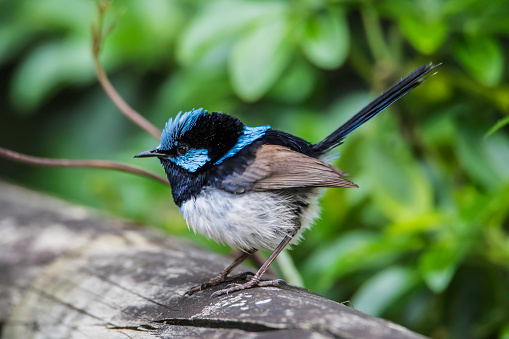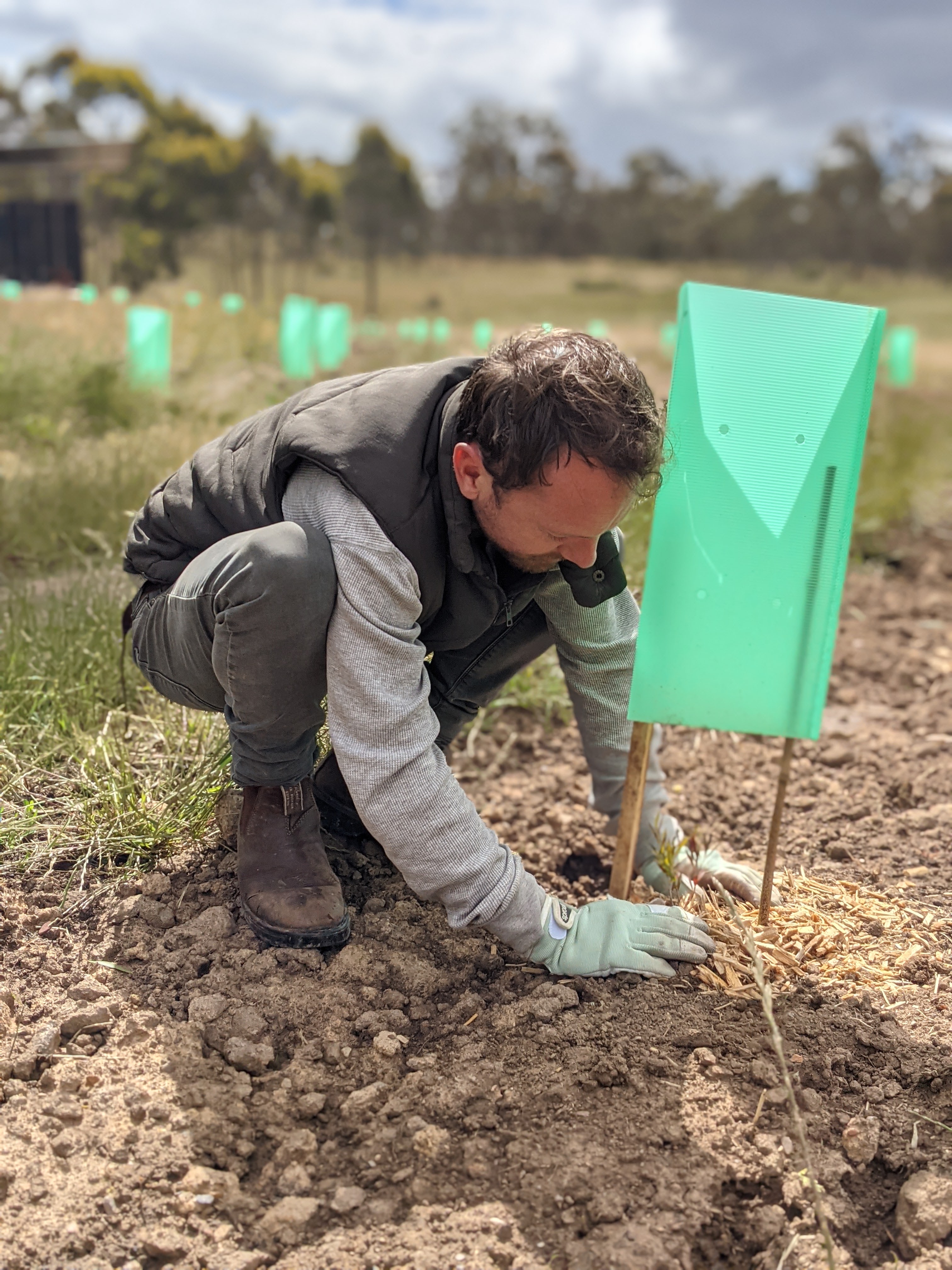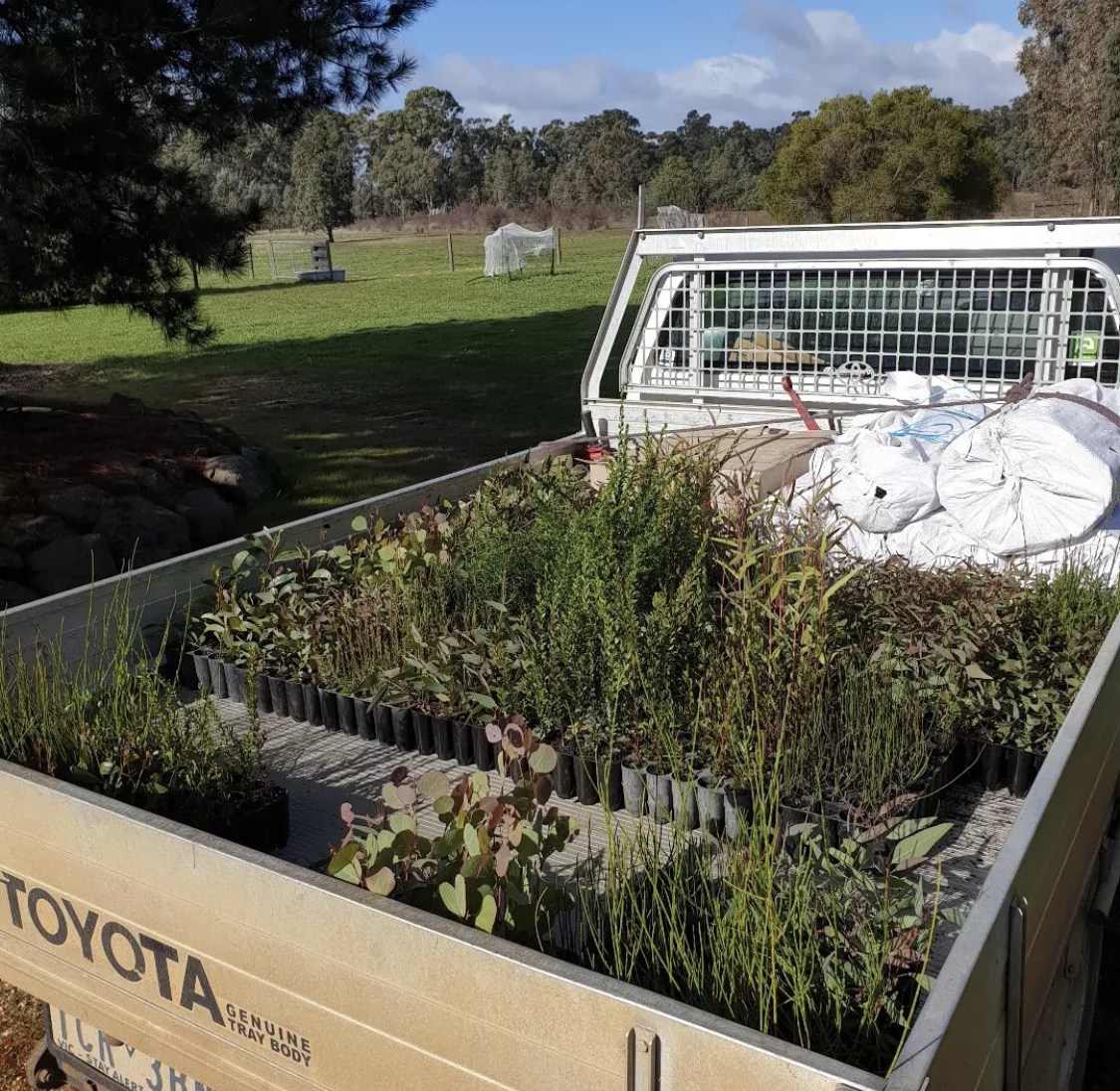November 22, 2023
|
Hornsby BMW. Investing in sustainability.
TREES PLANTED
4500
Hornsby BMW have risen to the call of environmental care and declared their commitment to helping Fifteen Trees fund the planting of 4,500 trees this year across VIC, NSW, SA and QLD. This is hugely appreciated, not just by us, but also by the community groups who have had trees purchased for their revegetation projects. These trees will provide habitat for native wildlife, improve soil and water conditions, enhance the natural beauty of the area, and take carbon from the atmosphere. And that’s just for starters! Such a simple action planting a tree has so many long-term benefits!

Did you know that to reduce carbon of one vehicle, we all need to plant 15 trees annually? A pledge of 4,500 trees means that Hornsby BMW is reducing the carbon of approx. 300 of their vehicles. The commitment of sponsors like Hornsby BMW, has made an enormous contribution to our national native tree planting projects.
December Quarter 2023 | 1,500 Native Trees
The 1,500 trees were planted at the following sites:
- Daintree Rainforest, QLD – 500 trees
- Werribee River, VIC – 500 trees
- Hindmarsh, SA – 500 trees
Daintree Rainforest, QLD | 500 trees
Located south of the Daintree River, a new project on Bells Road has begun thanks to the generous sponsorship of BMW Hornsby. The resulting new forest will be a paperbark-dominated emergent layer with a rainforest understory, comprising around 77 species of locally grown trees indigenous to the area. The planting footprint runs across four regional ecosystems, three of which are classified as endangered.

The new forest will form an outreach corridor from existing mangroves. This planting will create valuable and much-needed habitat and food resource for a multitude of animals. Research on the Queensland Government WildNet Species List, reveals that up to 13 species (endangered, vulnerable and near-threatened) are currently present in the area, including Australian Lacelid frogs, Macleay’s Fig-parrots, White-throated Needletails and Spectacled flying-foxes.
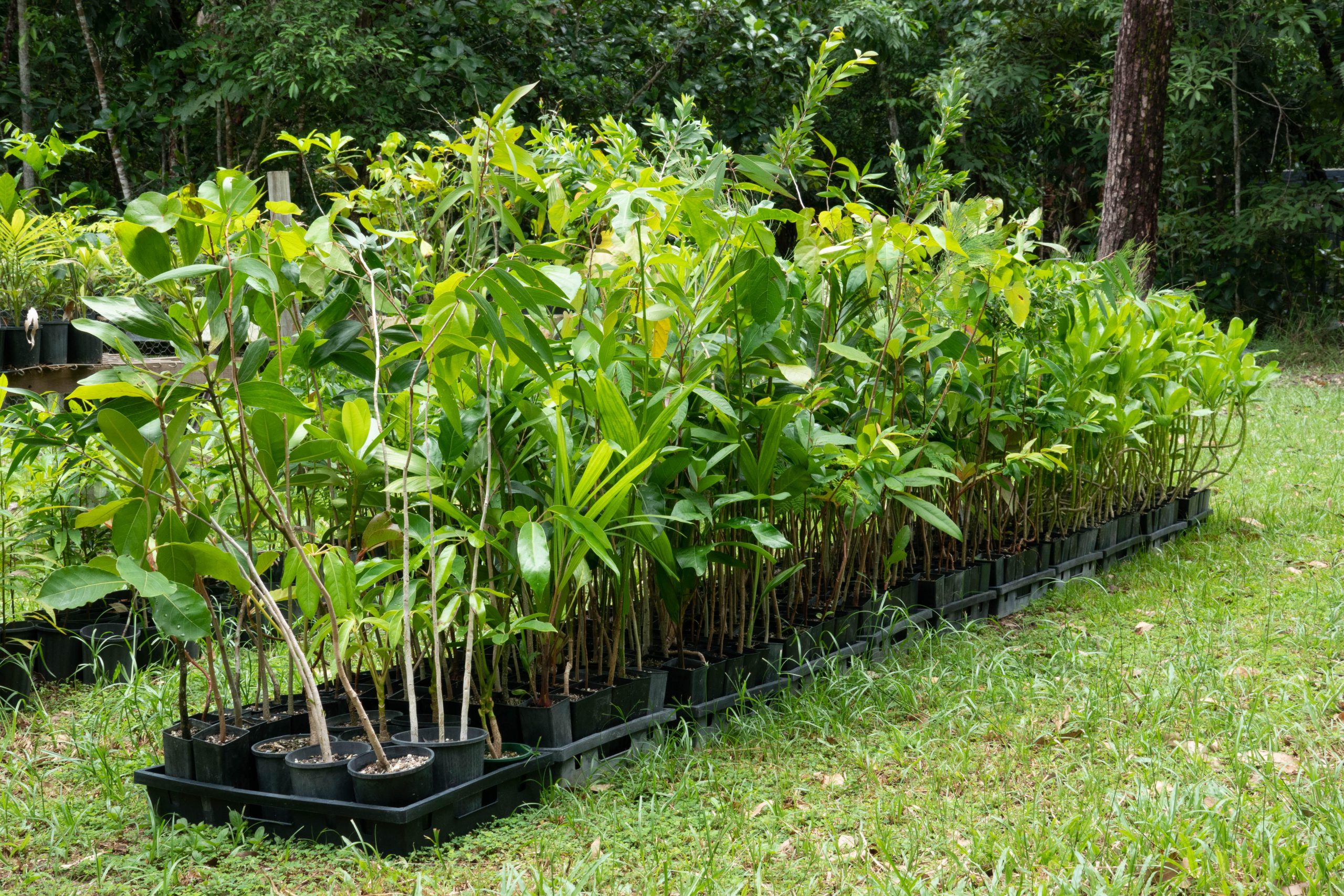
This particular project is being managed by Daintree Life, a small conservation group situated in the Daintree Forest of far north Queensland. This group have been planting trees in the Daintree since 2018. They firmly believe in restoring and expanding natural habitat for wildlife. Founders, Connie and Mike Pinson, work closely with Queensland Parks and Wildlife, removing rank grasses and weeds in the National Park to restore food resources and ecological function.
Funding from BMW Hornsby, has enabled them to continue with their revegetation work.
Werribee River, VIC | 500 trees
This planting site is on the Werribee River at Ballan, VIC (Wadawurrung country). This is an important site in the landscape, with the Werribee River marking the northern boundary. This project will improve connectivity through the site, connecting habitat in the rail reserve at the south of the site to the escarpment planting in the north.
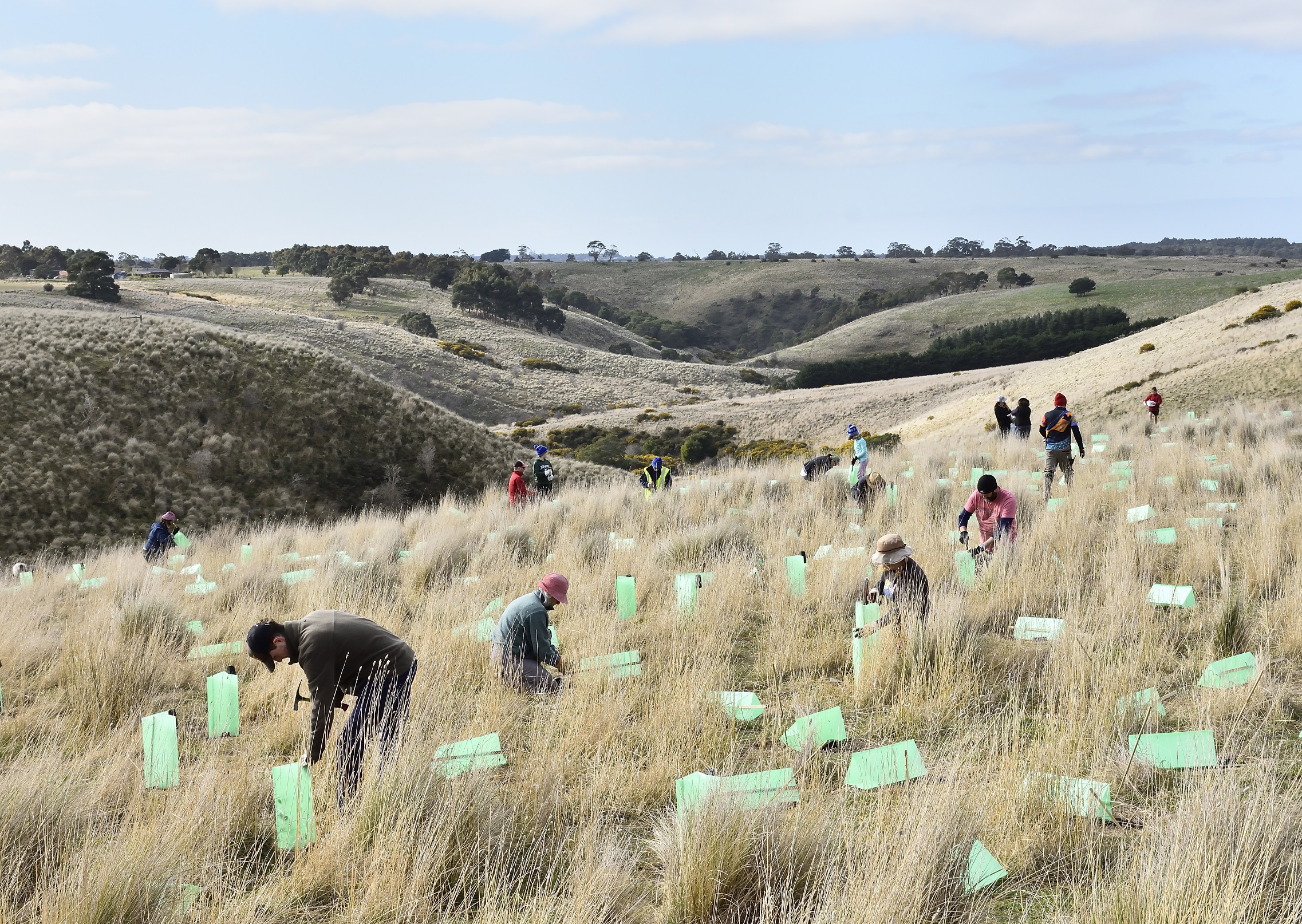
Thirty-two (32) species of plants ranging from herbs and grasses through to large trees were planted. Some species included: kangaroo grass, chocolate lily, rock correa, golden wattle, black wattle and manna gum.
This site sits within an Ecological Vegetation Class called Grassy Woodland of the Victorian Volcanic Plain Bioregion. The conservation status of the vegetation community along this whole corridor is endangered, (even though some species are common). This work helps to improve the habitat value of this significant river link through the landscape.
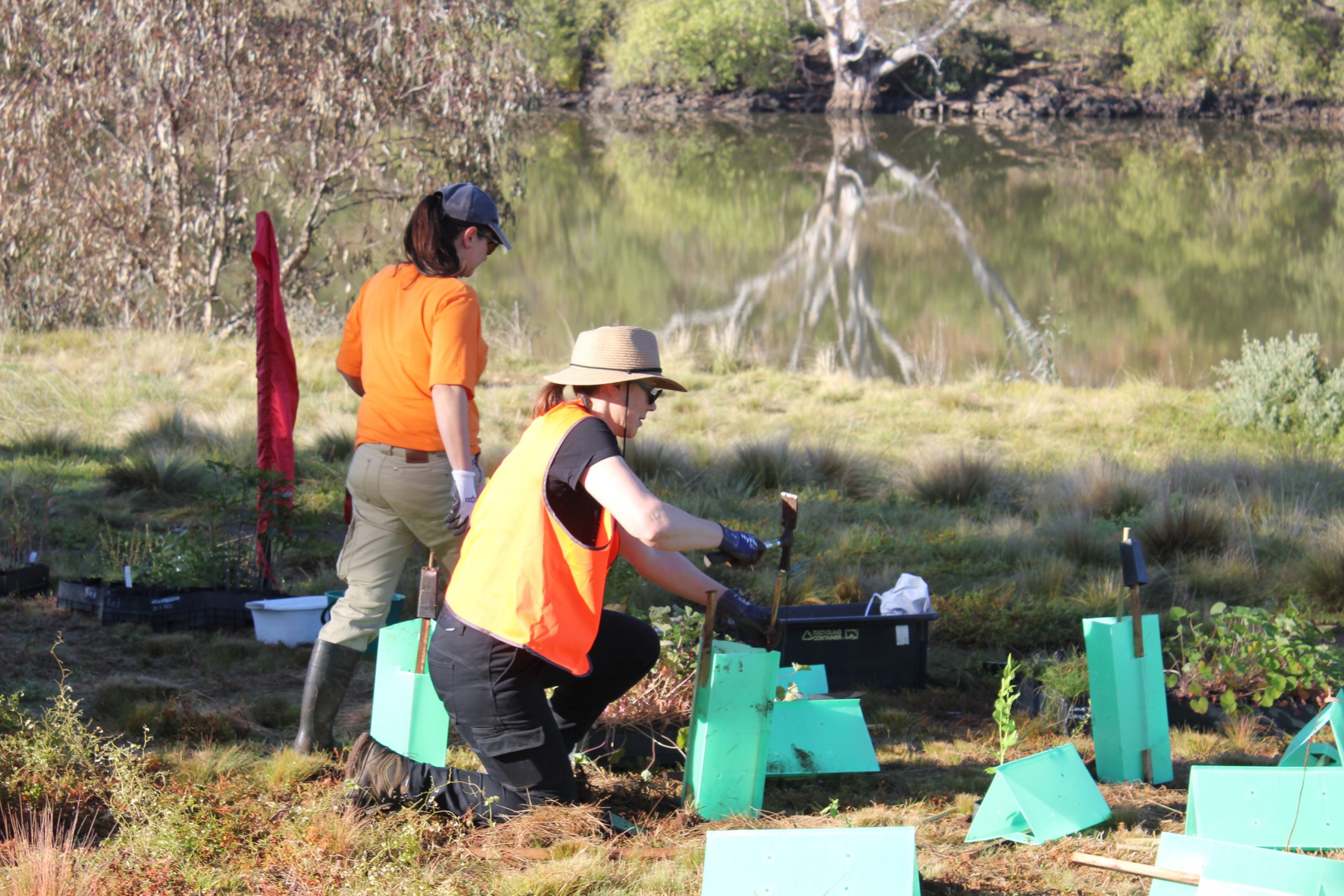
The iconic Platypus is regularly seen in this stretch of the river and gliding above the majestic Wedge-tailed Eagles can be seen.
The Upper Werribee Catchment Group would like to thank the sponsors of Fifteen Trees that finance the seedlings to projects like ours. Without your support, we wouldn’t be able to have the significant impacts that we do in connecting habitat throughout the upper Werribee catchment.
Lindy MacRaid | Coordinator | Upper Werribee Catchment Group
Hindmarsh, SA | 500 trees
At this site near Victor Harbour in SA, Friends of Hindmarsh River Estuary planted a mixture of species indigenous to the district, and grown from locally collected seeds. Species included; Golden wattle, Seaberry saltbush, Banksia, Kangaroo thorn, Drooping sheoak, Manna Gums and Swamp Paperbacks. The native trees and shrubs were planted at several locations along the Hindmarsh River Estuary.
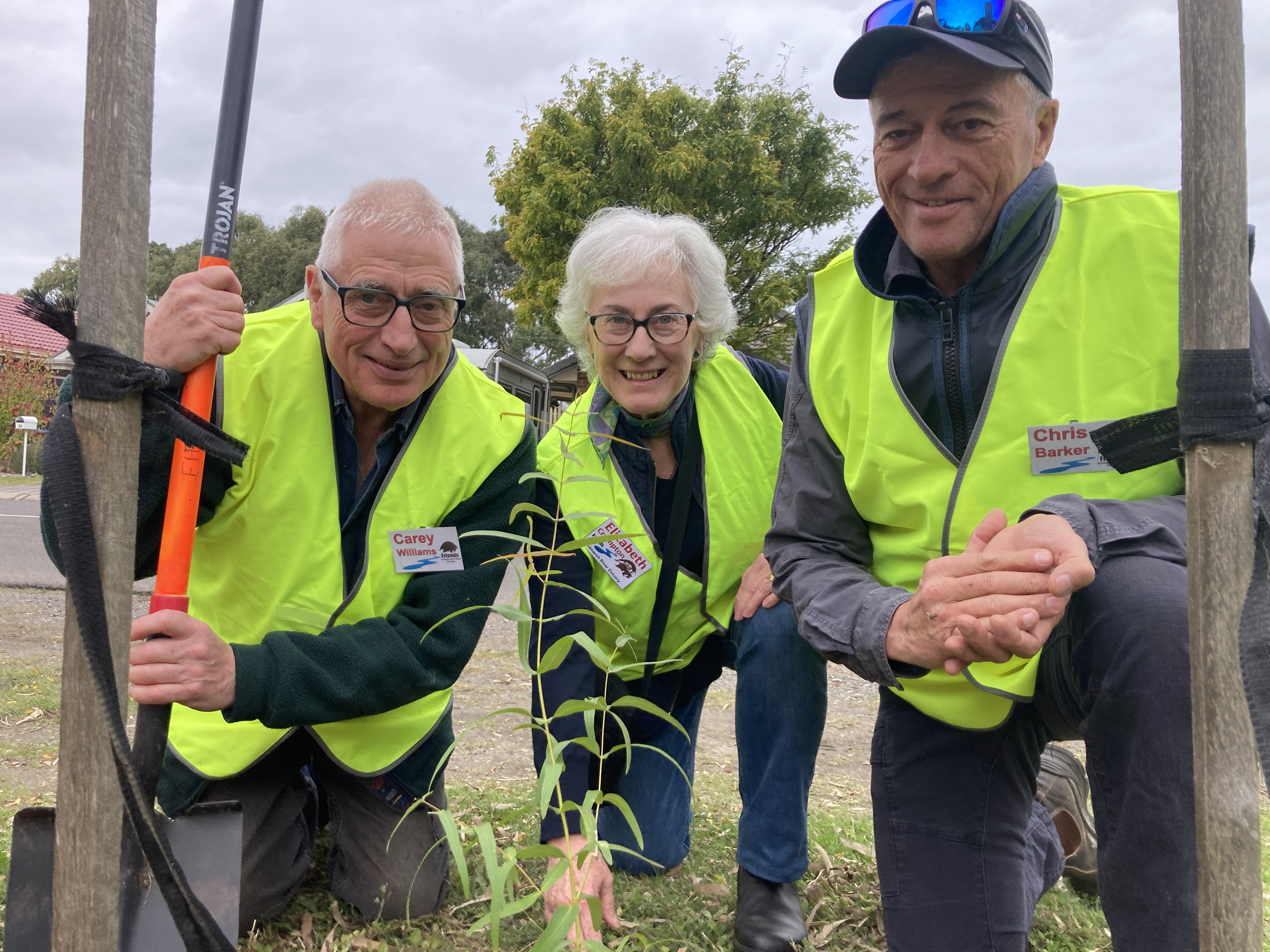
The planting will provide protective nesting vegetation for the threatened Hooded Plover and species such as Crested Shrike Tit, Black-chinned Honeyeater and Yellow Tailed Black Cockatoos.
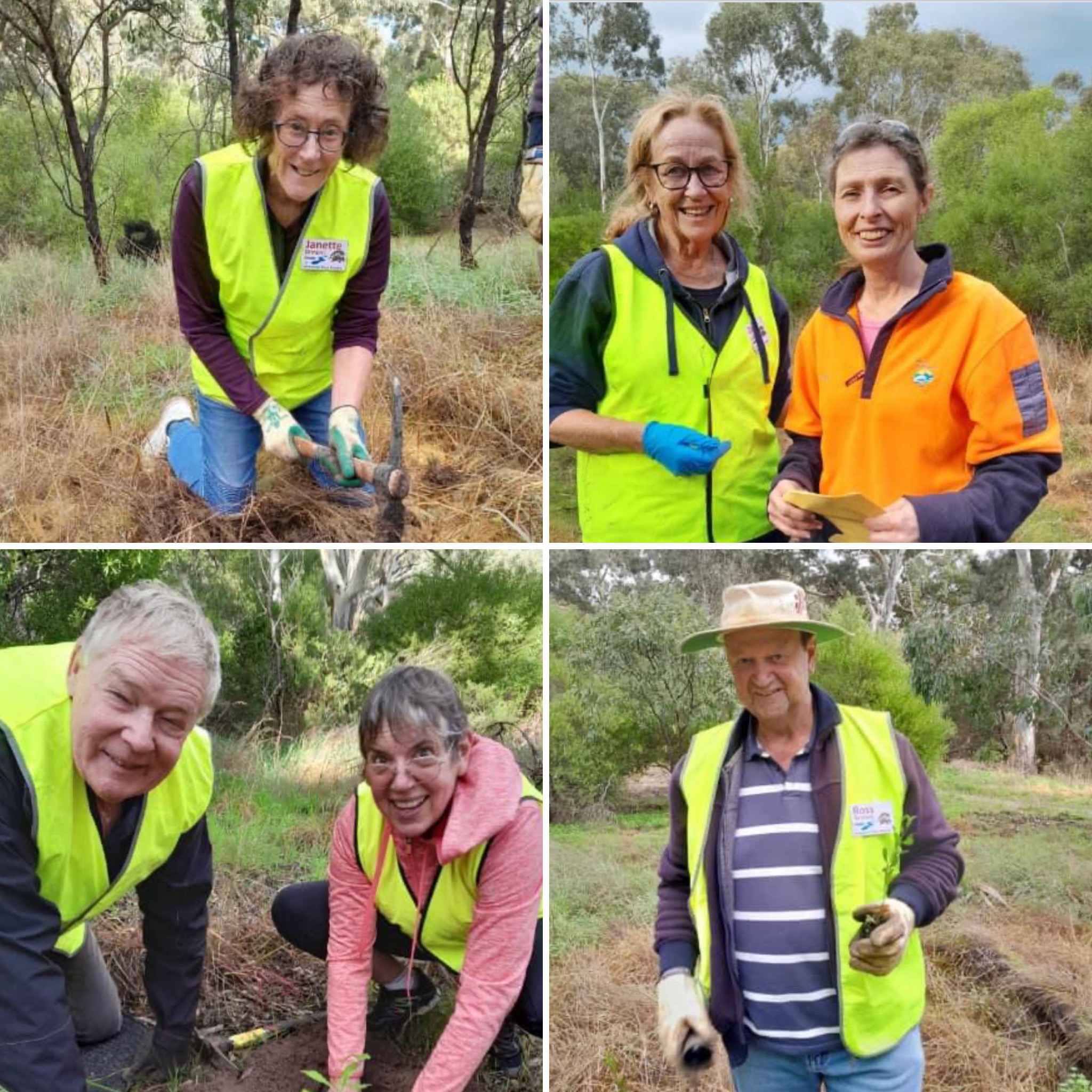
Many thanks. Your support is invaluable in assisting our group to improve the ecological environment of a the much-loved Hindmarsh River in SA.
Mark Richards | Co-convenor | Friends of Hindmarsh River Estuary
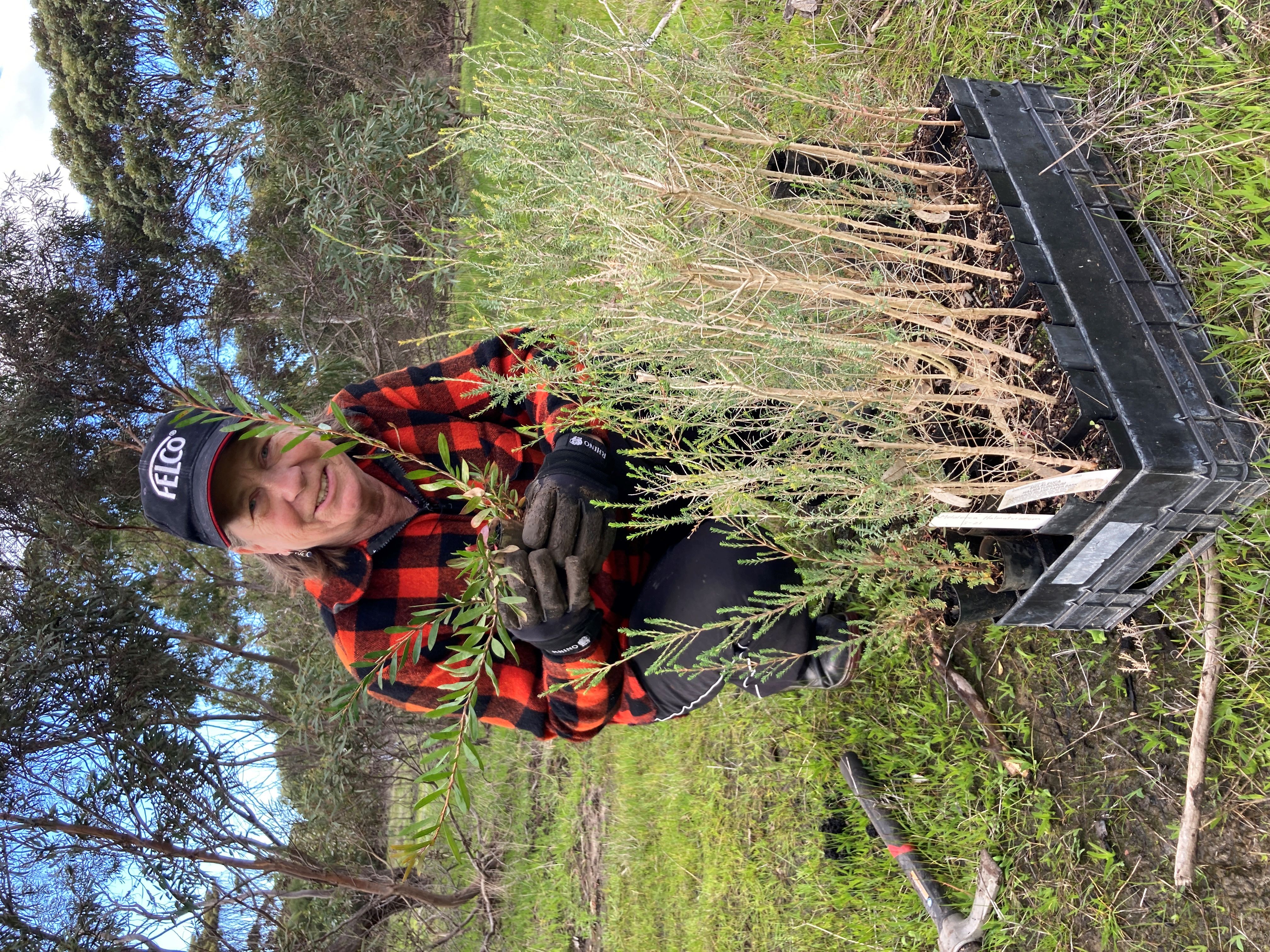
September Quarter 2023 | 3,000 Native Trees
The 3,000 trees were planted at the following sites:
- Barham, NSW – 100 trees
- Scotchmans Lead, VIC – 500 trees
- Westgate Bridge, VIC – 1,000 trees
- Cassowary Coast, QLD – 1,000 trees
- Esperance, WA – 400 trees
Barham, NSW | 100 trees
The trees, mostly Blackbox were planted on the Wakool River floodplain near Barham, NSW (Wamba Wamba and Perrepa Perrepa Country). The area had been heavily modified for agricultural purposes, with little remnant flora remaining. In patches, where native flora has been preserved there is a very unique and biodiverse vegetation community. Over 30 different species of indigenous plants have been identified on this site. This rich vegetation community supports a large number of bird and reptile species.
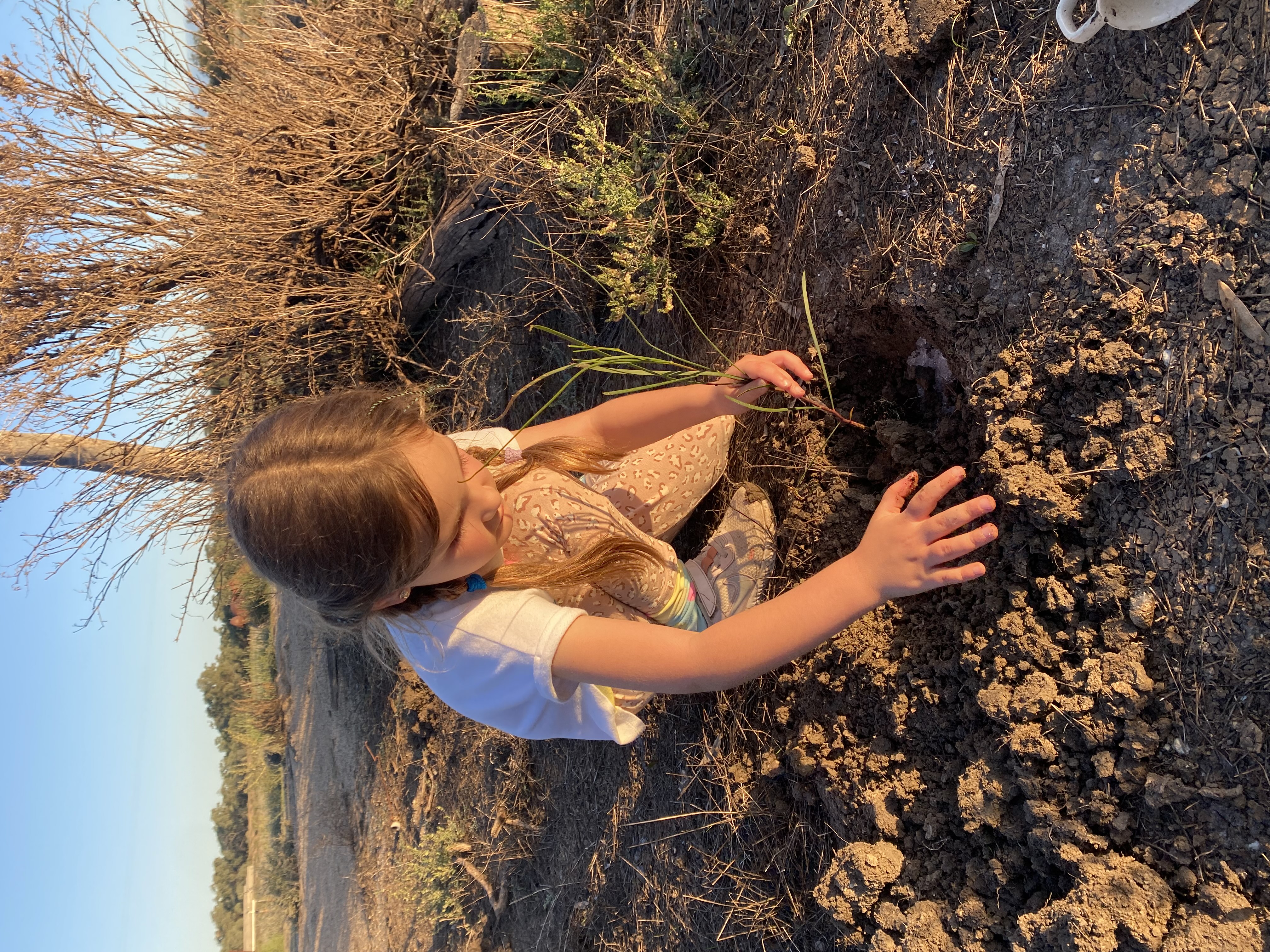
These trees have been planted to replant bare areas that were cleared in the past for farming purposes. This will help to form a wildlife corridor which will join to the vegetation which buffers the Wakool river. Animals, birds and lizards will be able to move more safely between these 2 zones and be provided with habitat, shelter and food.
Some of the native wildlife found in this district include: kangaroo, goanna, many species of skink, red belly black snake, lots of insects and butterflys, lots of bird species – willy wag tails, pardalotes, ibis, white faced heron and white throated heron, galah, pied butcher bird, kookaburra, white browed babbler, eastern rosella, magpies, crow, boobook owl, raptor species (wedge tail eagle, whistling kite) and so many more.
A big thank you and note of appreciation to those that have paid for our trees. Without you this replanting project would have never been started. Not only have your funds put trees back into the ground, but they have provided motivation and inspiration to ensure that this very important replanting project is completed. Thank you so much.
Lisa and Violet | Members | Barham Landcare Network
Scotchmans Lead, VIC | 500 trees
This year on National Tree Day (Sunday July 30th), along with 65 local volunteers we planted out Hornsby BMW 500 native trees at Scotchmans Lead, VIC. The day was coordinated by the Napoleans Enfield Landcare Group and Fifteen Trees.
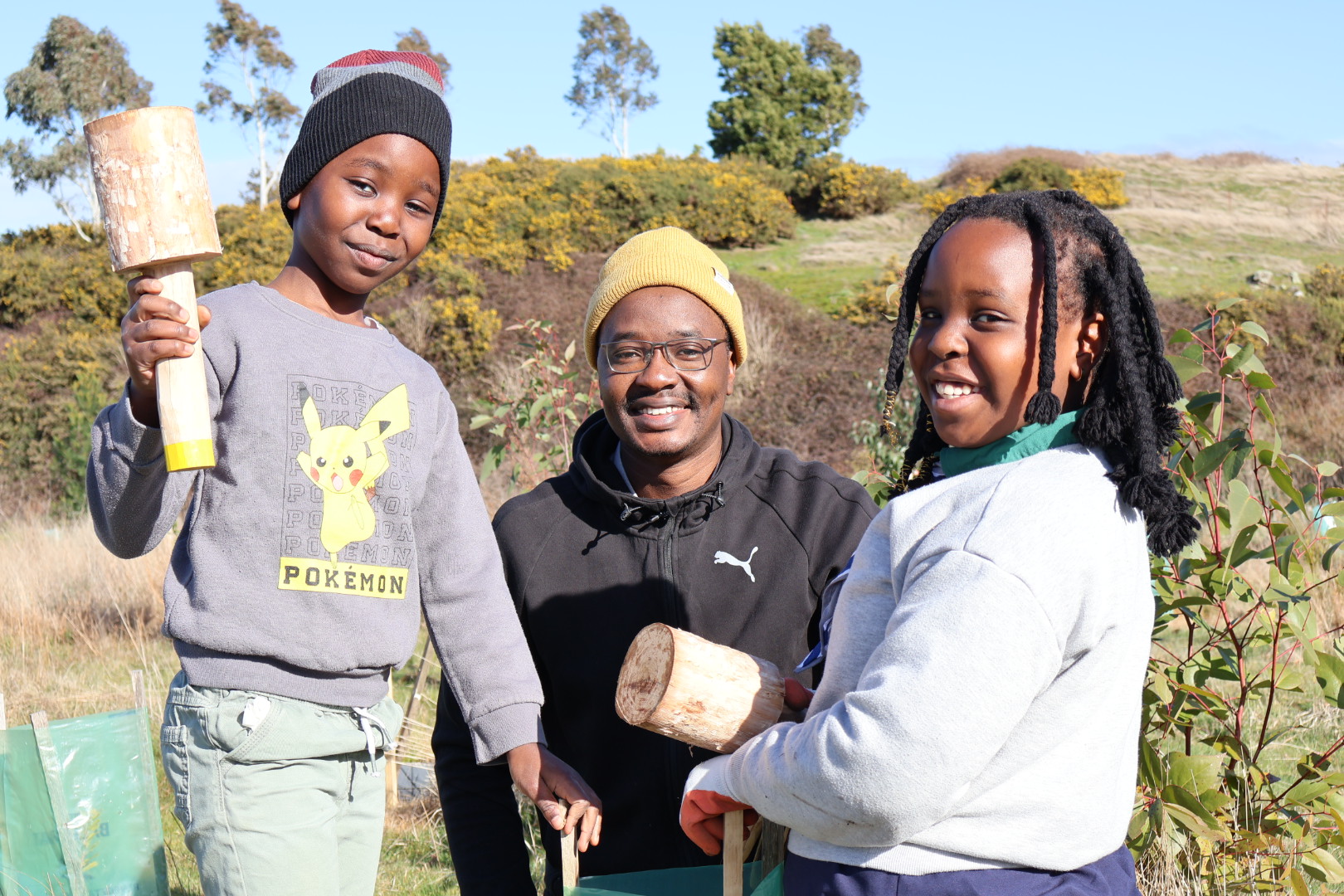
It is our foremost aim to bring back biodiversity to the surrounds of the Yarrowee Creek, south of the city of Ballarat.
Jenny Ryle | Co-ordinator | Napoleans-Enfield Landcare Network
The trees were a mixture of species indigenous to the district. They were supplied by Matt Pywell and the Ballarat Wildplants Nursery. Tree species included a variety of wattles and gum, including Manna Gums and River Gums.
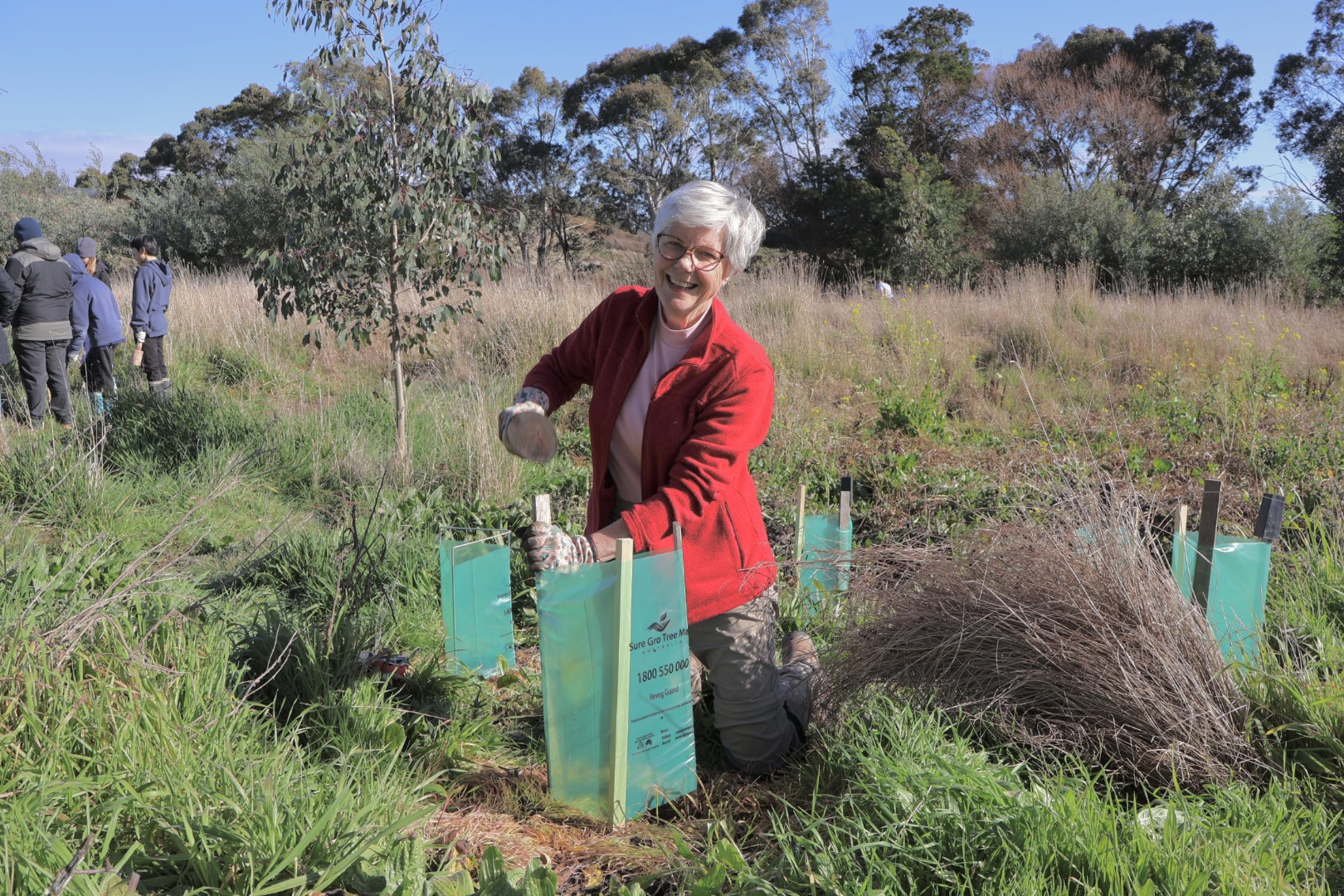
The aim of the planting is to bring back the biodiversity that once occupied this area. With past plantings, native grass is now flourishing and the presence of previously planted native vegetation is changing the depleted soil into a thriving ecosystem. These new trees and shrubs will grow tall helping to reduce carbon emissions into the future. The planting group will be linking this area to the nearby forests and along the river to give the environment a good chance to grow at its best, despite a changing climate.
Westgate Park, VIC | 1,000 trees
Fifteen Trees has been working with Westgate Biodiversity for 8 years and have watched the park expand and grow. This has been due to the team of amazing volunteers, some whom have been attending weekly park activities for over a decade. This winter, we planted 1,000 native trees and shrubs on the behalf of Hornsby BMW.
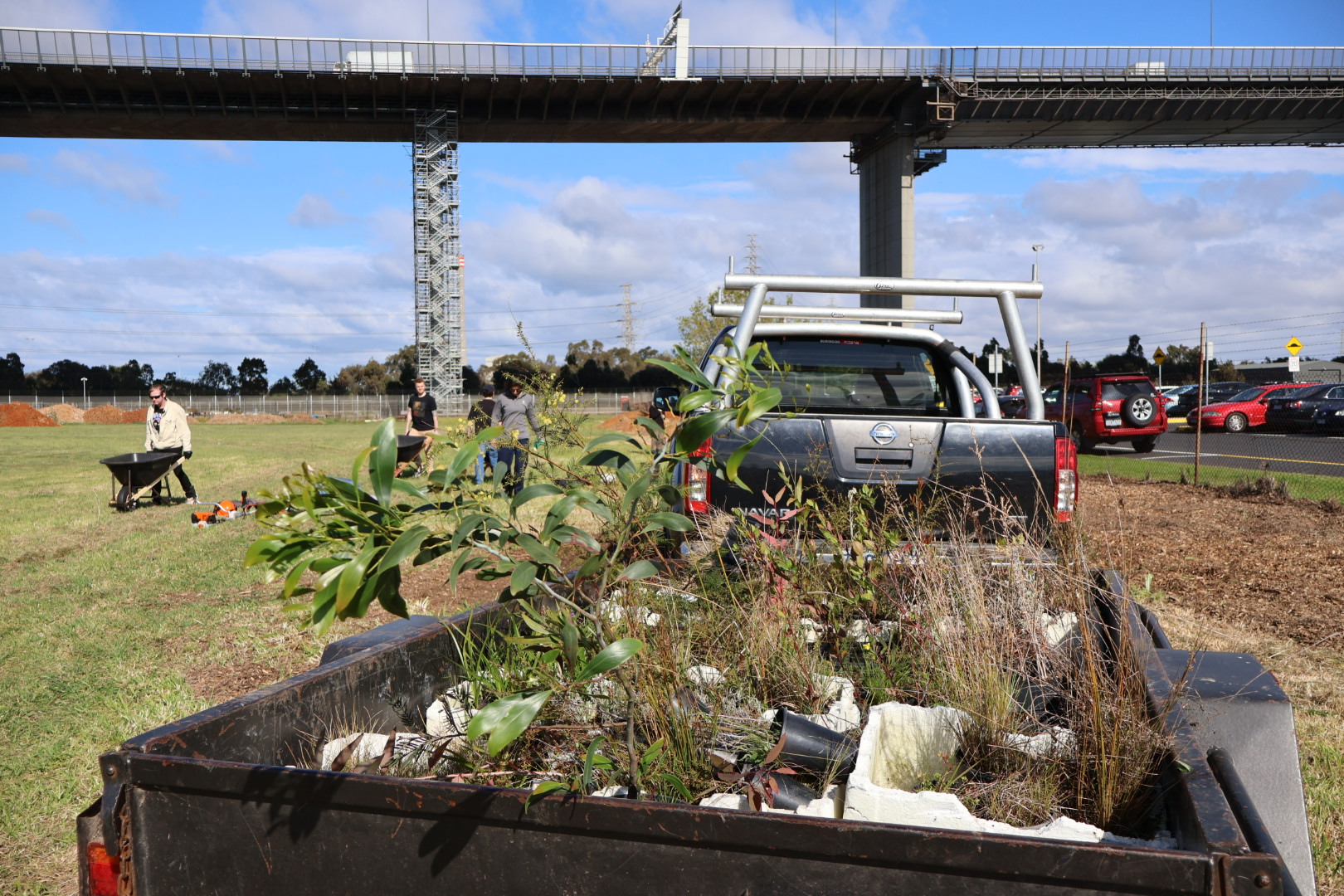
The trees are a mixture of a variety of natives, all indigenous to the district. In fact, the seeds collected to propagate plants have been gathered within a 20 km radius of the park. They are grown by a host of volunteers from Westgate Biodiversity and delivered to the park for planting over the course of the winter and spring.

Maadi, Cassowary Coast, QLD | 1,000 trees
The last 1,000 trees planted for this quarter were along Thistle Road at Maadi in Tropical North QLD (Djiru Country) by a community group called Brettacorp Inc. Over 35 difference native species of trees and shrubs were planted. They included: Bleeding Heart, Alexander Palm, Blue Quandong, Queensland Maple, Blue Ginger, Dianella, Black Bean, Cordyline, Flame Tree, Figs, Glochidon, Ulysses Butterfly Tree, Umbrella Tree, Oaks and Acacias.
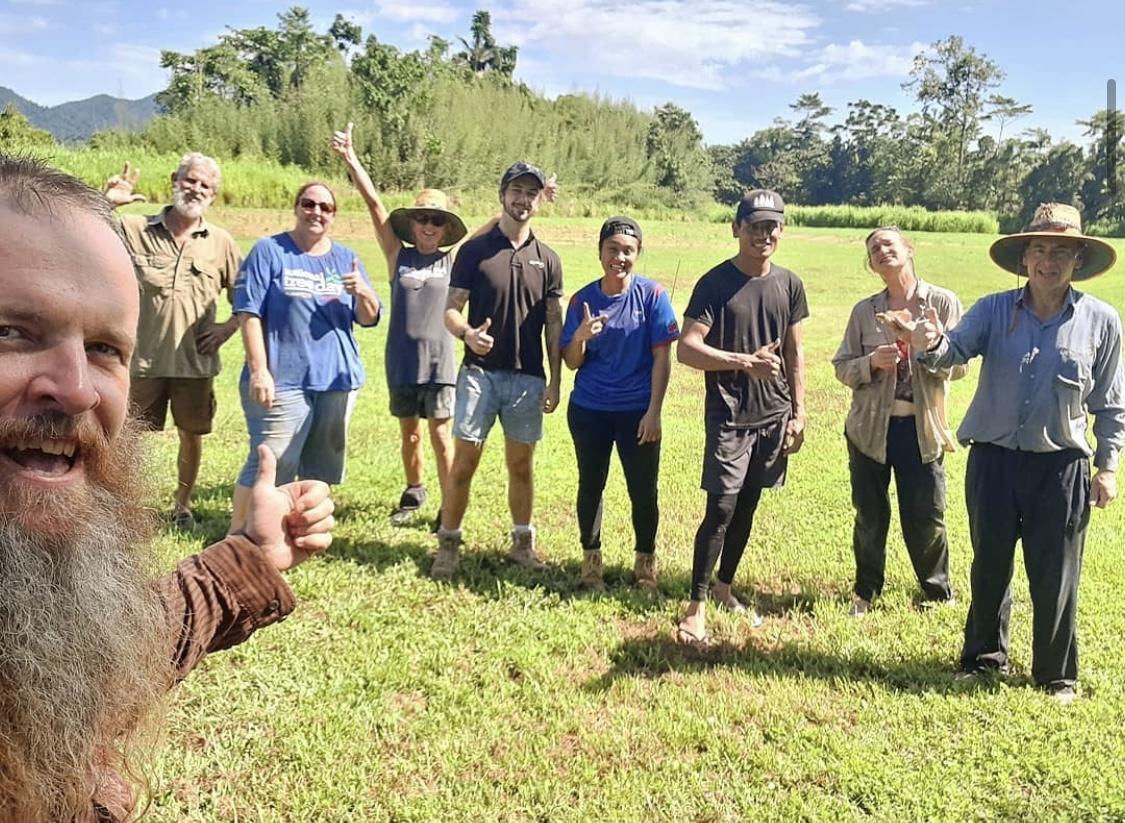
These trees will provide food source trees for endangered species, especially the Southern Cassowary plus many other fauna. Trees will improve the waterway dramatically and hopefully lead to longer water retention across seasons providing homes for frogs and other small aquatic insects. This site is important because there is a small seasonal waterway there overgrown with Singapore Daisy and Guinea Grass on both sides. The Southern Cassowary is also in this region and is an endangered species. This reforestation project will extend native remnant forest and fully rejuvenate the site with native flora.
Some of the native animals we have seen in the area include; Southern Cassowary, Broad shouldered Dove, Emerald Dove, Imperial Pidgeon, Bee Eaters, Currajongs, Sun Birds, Scrub Fowls, Eagle, Kite, Hawk, Bats, Green Frog species, Kookaburra, Bandicoots, Native mice and small marsupials, Snake species, Lizard species, Ulysses Butterflies, Cairns Birdwing Butterflies, Several other moths and butterflies, Spangled Drongo, Lorikeets, Sulphur Crested Cockatoo, plus so many more. This area is an absolute paradise.
A huge thank you to sponsors of Fifteen Trees and in particular Hornsby BMW for helping us create habitat that supports endangered species in the Cassowary Coast region of Tropical North Queensland. With your help we are making homes and providing food for our native fauna. Thank you.
Brett Krause | Founder | Brettacorp Inc
Esperance, WA | 400 trees
The Dalyup River Catchment Group (DRCG) in Esperance, WA are working to regenerate the land upon which has had significant damage from past activities (mining, agriculture). The site is within a Ramsar (site of international importance) listed wetlands catchment, and includes a creek-line of cultural significance.
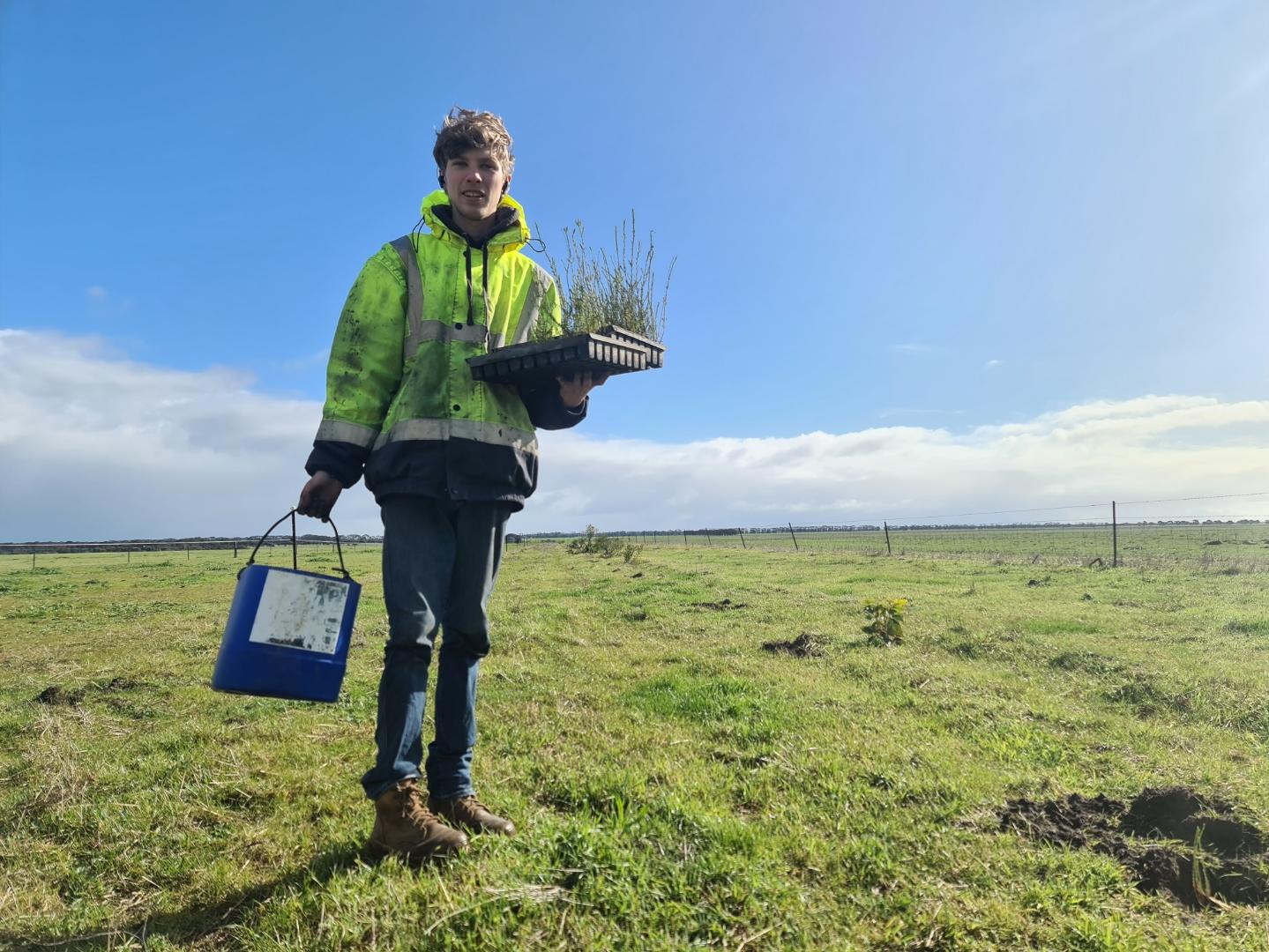
The trees were planted over the course of the winter by DRCG members Dorothy and Richard Henderson. The types of trees planted were 4 different species of melaleuca and 2 different species of acacia or wattle.
By helping us to re-vegetate this land, you have helped us bring life back to the land. It would not have been possible for us to do the rehabilitation work that we have done without the help of others. Bringing trees back into this landscape has brought it, quite literally, back to life. The most obvious change has been the variety of birds that now come into the district. The trees we plant provide habitat for other creatures, while also serving as wind breaks helping to prevent erosion, and soaking up excess moisture in areas prone to water-logging and salinity.
Dorothy Henderson | Member | Dalyup River Catchment Group
Many thanks to Andrew and the team at Hornsby BMW for making such a significant contribution to our community tree planting projects. This page will be updated every quarter as we plant more and more trees for this big-hearted company.
If you would like to know more about sponsoring community tree planting projects and how we can assist you in becoming a more sustainable business, please contact Colleen at <[email protected]>.
Writer – Lou Ridsdale
Lou is a big fan of words and has been our Comms Manager since 2019.
She is a green thumb, Earth Lover, big-hearted nature freak, plus a savvy media and horticulture expert, who passionately believe that everyone can lead a more nourishing and sustainable life. Her passion for education + communication being the most empowering tool for change is reflected in her setting up her side hustle Hey Hoe Let’s Grow. She also founded Food Is Free Inc., a unique grassroots food security platform specialising in food security education. She fell in love with trees after reading The Magic Faraway Tree as a child.
You can find Lou here
RECENT TREE PLANTINGS
500 TREES PLANTED
100 TREES PLANTED
125 TREES PLANTED
SIGN UP FOR OUR MONTHLY UPDATES.
Restoring Australian ecosystems. Supporting communities with their revegetation projects for a greener and healthier planet.
Fifteen Trees acknowledges Indigenous Australians as the traditional custodians of the lands on which we work, live and play.
We recognise that Indigenous Australians have cared for and lived in harmony with this land for millennia, and their knowledge and wisdom of the land endures.
We pay our respects to Elders past, present and emerging and stand in solidarity as Indigenous Australians seek a fairer and more sustainable future for the land and its people.
